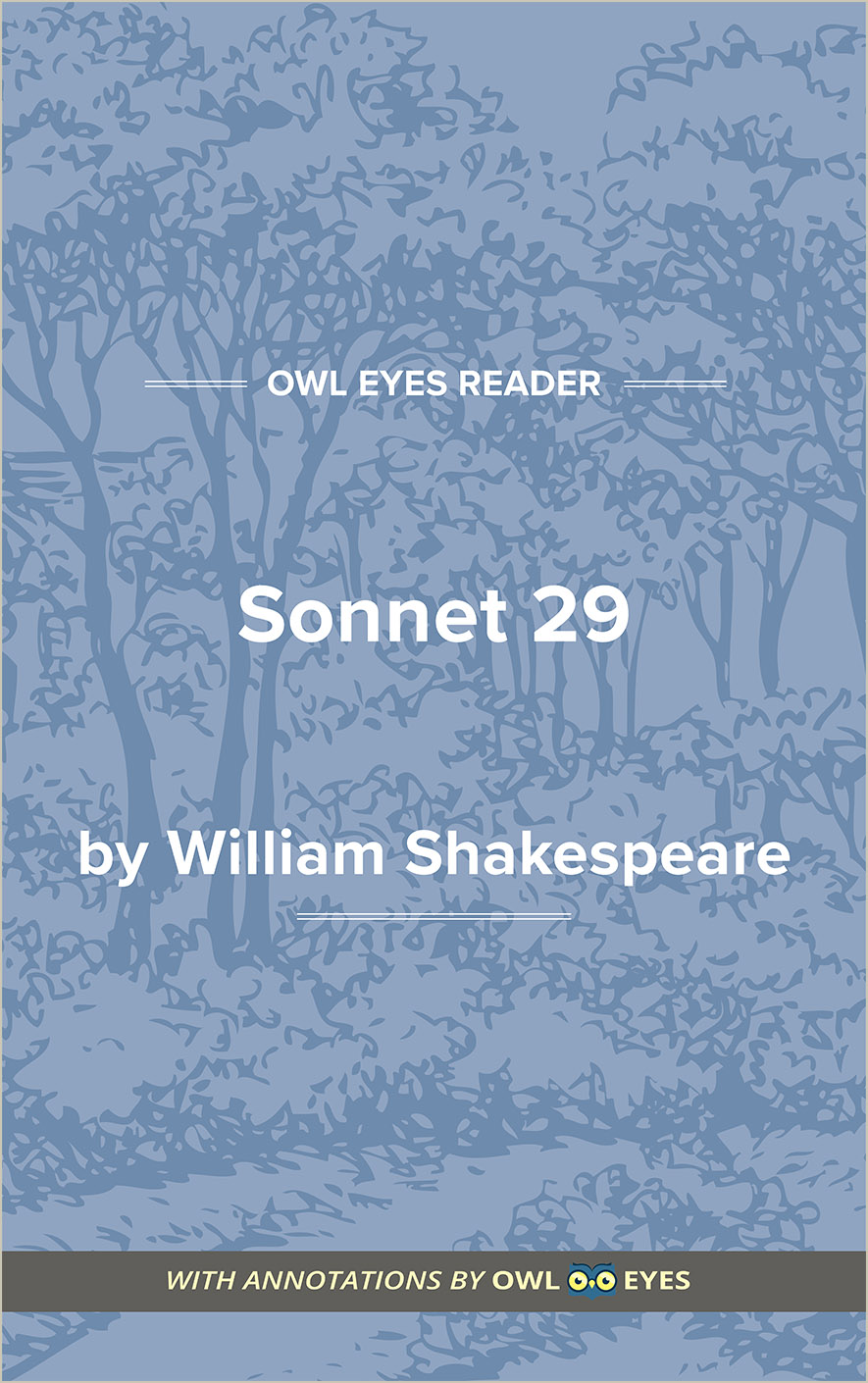Analysis Pages
Vocabulary in Sonnet 29
Vocabulary Examples in Sonnet 29:
Sonnet 29
🔒"arising..." See in text (Sonnet 29)
"rich in hope,..." See in text (Sonnet 29)
"my state..." See in text (Sonnet 29)
"bootless ..." See in text (Sonnet 29)
"my state..." See in text (Sonnet 29)
"contented least..." See in text (Sonnet 29)
"state..." See in text (Sonnet 29)
"Fortune..." See in text (Sonnet 29)
"disgrace..." See in text (Sonnet 29)

